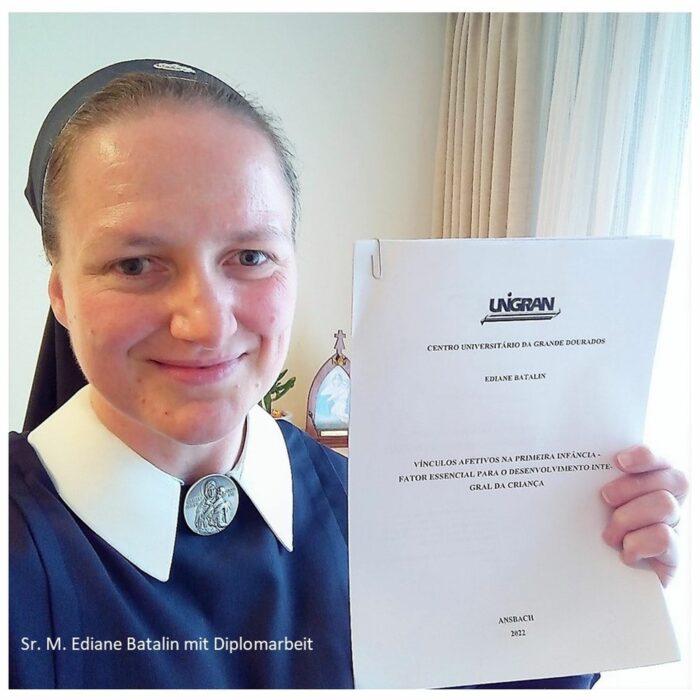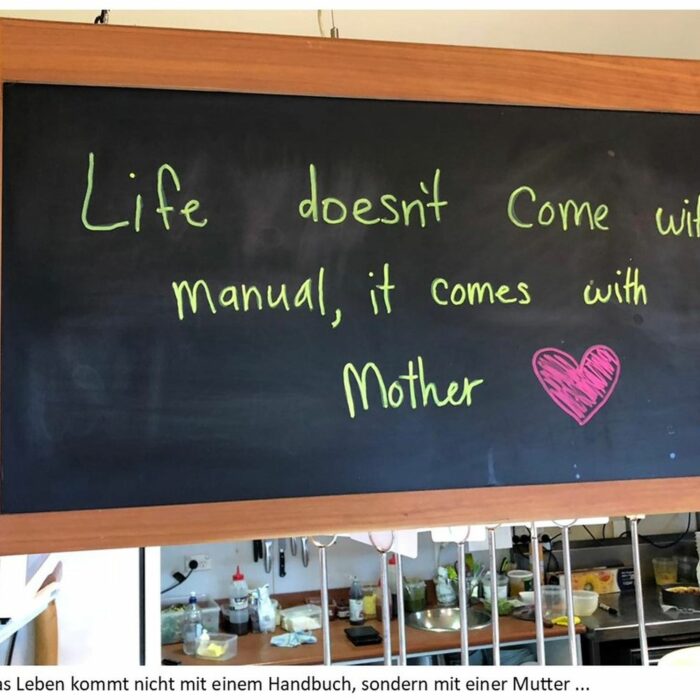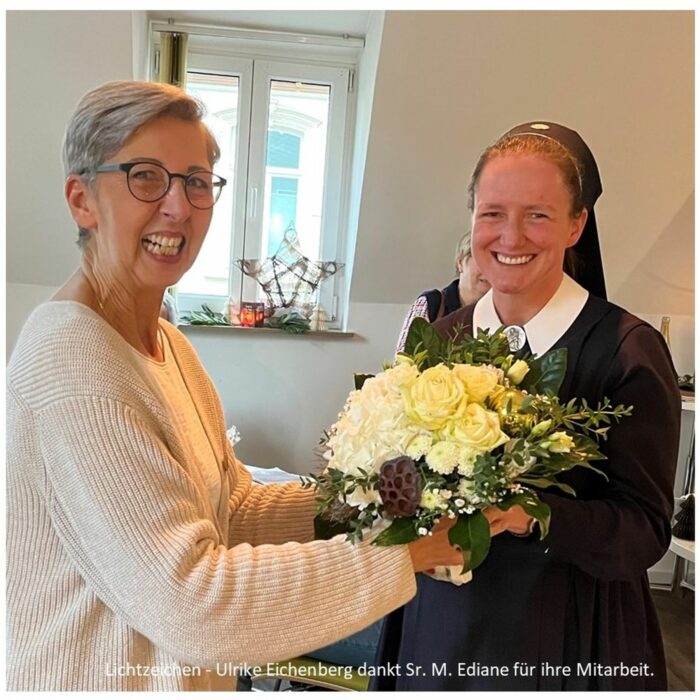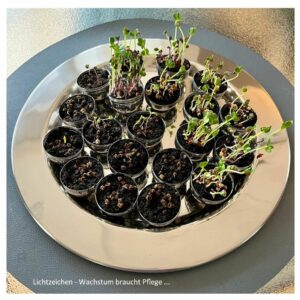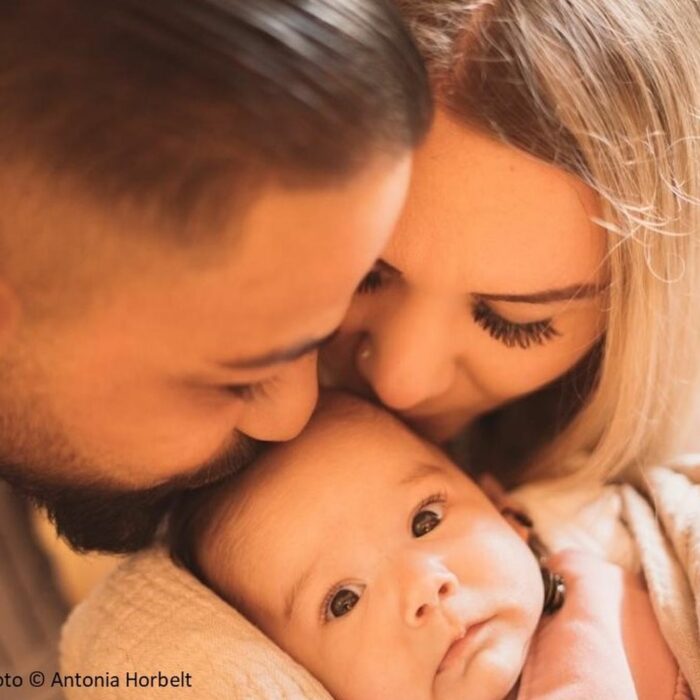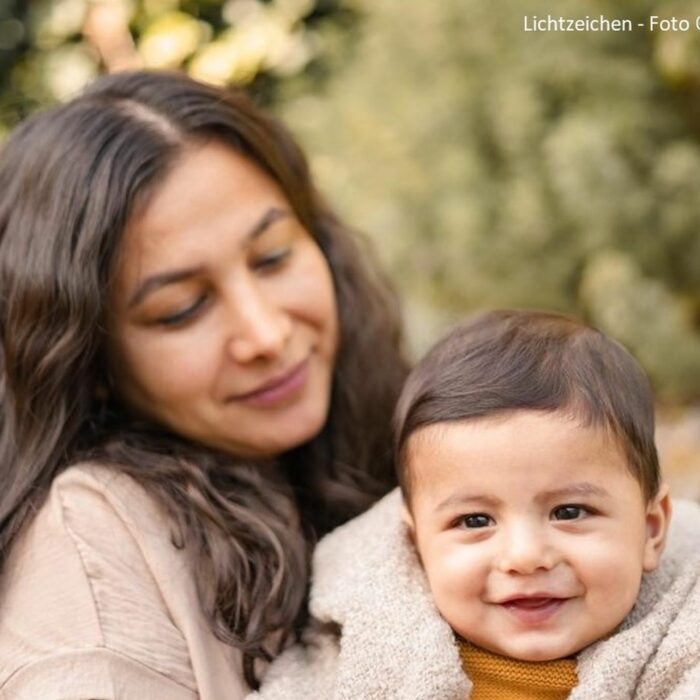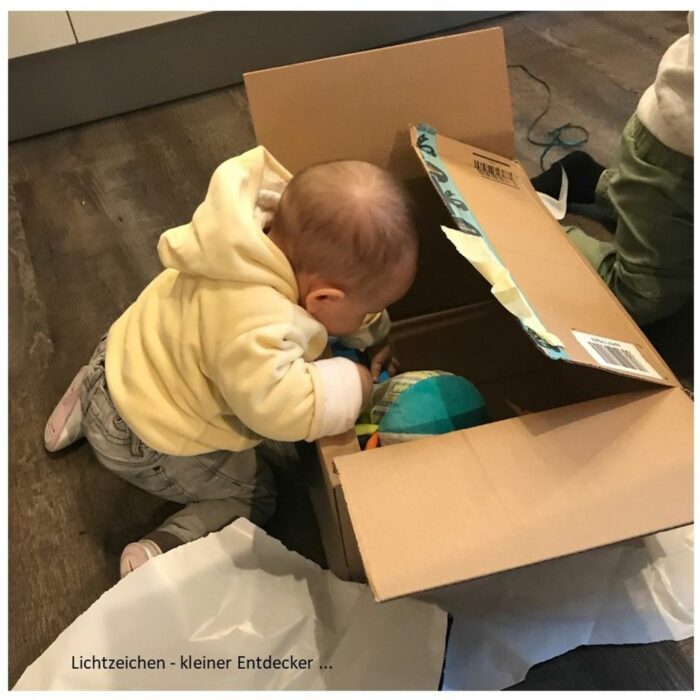Besides my other work: an online course in pedagogy
With great joy and gratitude, I graduated in December with an online degree in pedagogy. The major consisted of eight semesters of intensive classes. Since the courses were online, I could complete my degree alongside my other work in the community of the Schoenstatt Sisters of Mary and the pregnancy help center Beacon of Light.[i]
The common thread in my program
A thesis was required for my degree and my topic was clear to me even before I began the program. I wanted to write about emotional attachments to other people, places, and values, during early childhood and how the positive development of these relationships make a person self-confident and strong. Formulated scientifically, my thesis was about affective bonds and their importance for the holistic development of a child in early childhood. This wish arose in me through my conversations with young people and adults, through observations and experiences that I gained during the years I worked with children in a daycare in Brazil—my home country—and during my internship at the pregnancy help center Beacon of Light.
The goal: organic development
A sentence from Father Joseph Kentenich pointed me in the right direction:
“Normally, a child should grow up within a holistic organism of attachments. A child should grow up with bonds to places, people, and ideas.”
In order to develop organically, Henri Wallon (1879-1962), a French psychologist, made the point: What is decisive is the whole, not the parts. Therefore, it is important to consider a person holistically.
What happens when important relationships are missing?
When we look at the family situation of a majority of our children and students world-wide, we can ascertain that from early on they are confronted with painful and often traumatic experiences. In many cases, this makes it impossible for them to experience early childhood as a carefree and happy time that is filled with discoveries and learning. These painful experiences include: loss (death, separation and/or divorce of the parents); rejection and abuse; indifference and neglect of parents and/or guardians; an overload of emotional stress, and lastly, the lack of positive affective bonds in the earliest years of their life.
Security, self-confidence, and appreciation
The goal of my work was to identify the bonding process between mother and child, or bonding to a substitute, and its contribution to the holistic development of a child and probable consequences when these bonds are missing. I studied and observed these bonds in detail and their contribution [to development in early childhood] during my internship at the Beacon of Light pregnancy help center with its many contacts.
The evidence was clear that the holistic development of a child from birth to the age of 6 depends on the quality of the affective bonds established during this phase of life. Only through these bonds does the child gain the security, self-confidence, and self-esteem necessary for the child to act autonomously and freely, to explore the environment in which it lives, to interact with people, and to experience different situations in a positive way.
A deeper understanding of human development
To educate means to serve, nurture, and foster the life that is entrusted to us. Therefore, for the good of society, it is necessary to know, reflect upon, and deepen the processes connected to human development.
My education and training has provided me with deeper understanding of human development and the deficits under which many people suffer. My work with pregnant women in precarious life situations, with young mothers and children, gives me the opportunity to contribute my [knowledge] and experiences in a positive way.
“All the threads of a person’s soul must be bound on the natural level.
If they are not bound, or if there are insufficient bonds, the soul suffers a terrible break.
The normal development of the human person is dependent upon an organism of attachments:
The person must be attached to people, places and ideas.” (Father Joseph Kentenich)
[1] For more information: Lichtzeichen e.V., www.lichtzeichen.org
